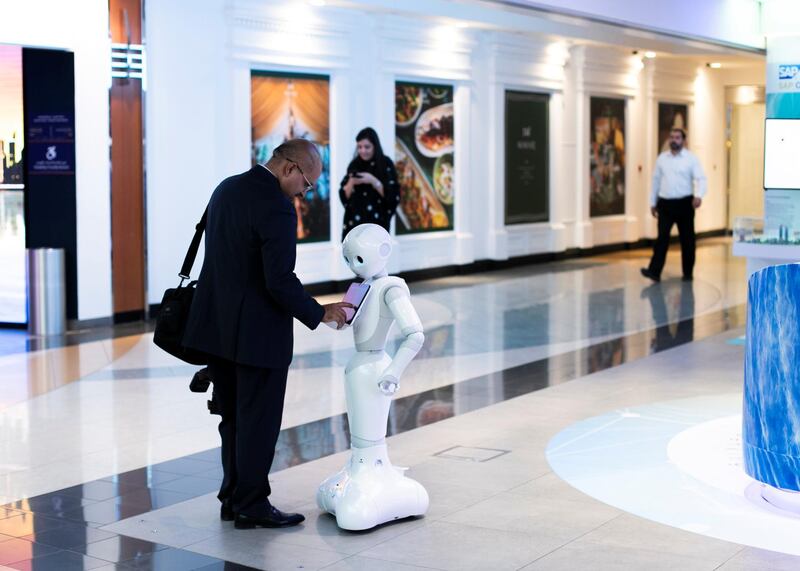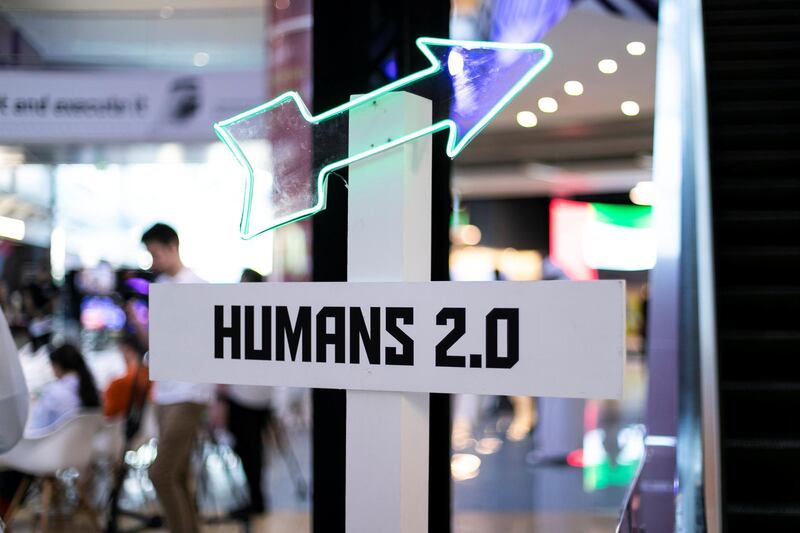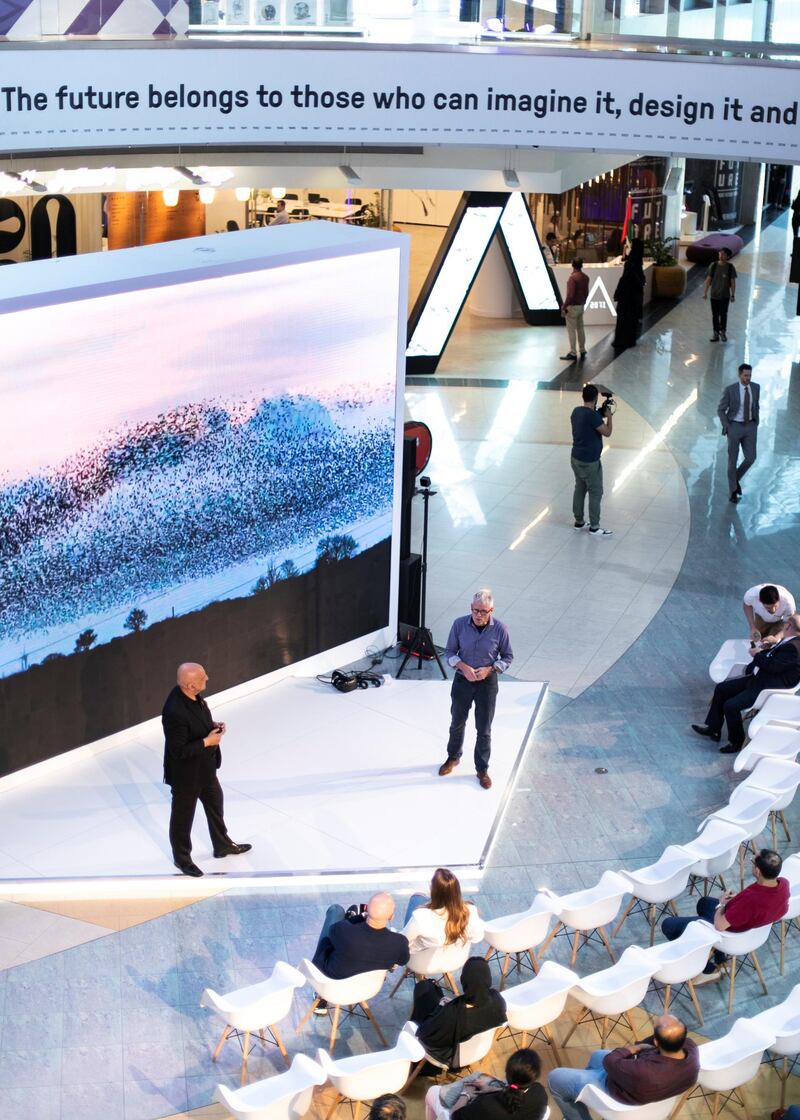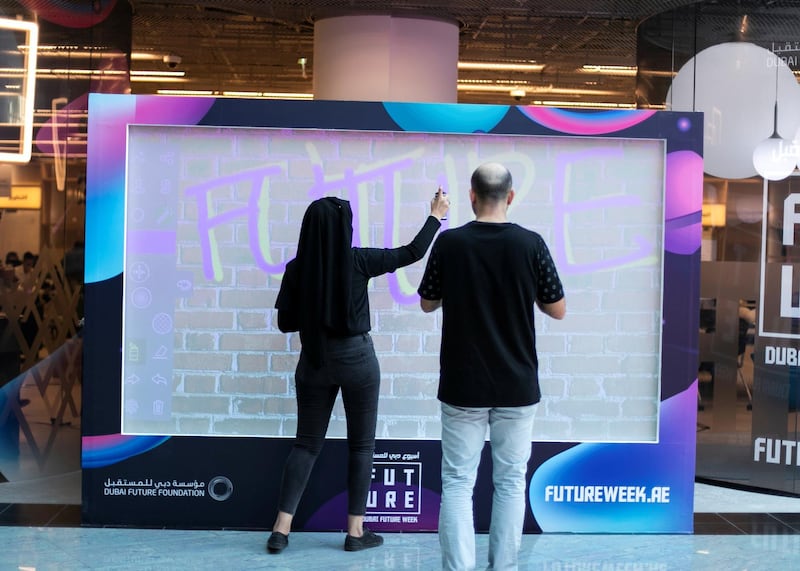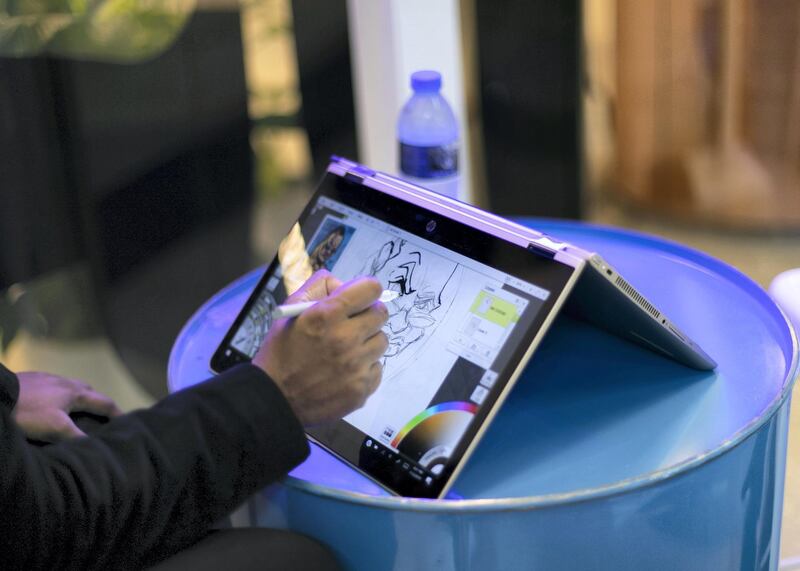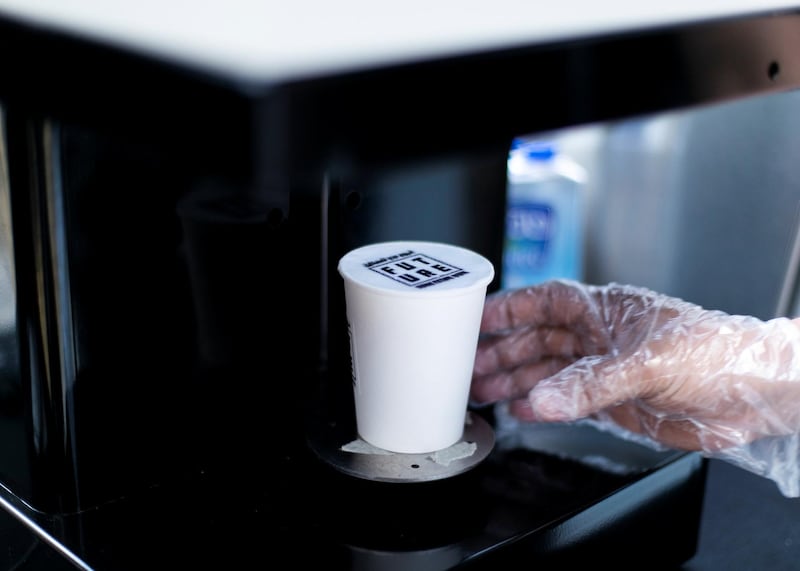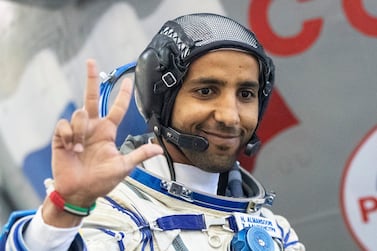The Dubai Future Foundation is inspired, in part, by a cautionary tale: the banning of the printing press in the Arab world. Arabic translations on the new machine were outlawed until the 18th century, nearly 400 years after its invention.
"Banning the printing press because we were afraid of technology put this civilisation on hold for a long time," Abdulaziz Al Jaziri, deputy chief executive and chief operating officer of the Dubai Future Foundation, told The National at the EmTech Conference in Dubai. The same mistake will not be made with emerging technologies in the 21st century.
"Showing people that we are a city for the world and by the world is the best way for us" to advance, Mr Al Jaziri said, adding that Dubai aims to be at the centre of conversations around the deployment of artificial intelligence and in navigating the ethical and governance dilemmas facing emerging technology.
To that end, the foundation is hosting Dubai Future Week, bringing the World Economic Forum’s Future Councils here for its annual meeting ahead of Davos as well as the EmTech Conference alongside the MIT Technology Review.
Professional services firm PwC estimates that AI could contribute $15.7 trillion (Dh57.7tn) to the global economy by 2030, as a result of productivity gains and increased consumer demand driven by AI-enhanced products and services. But the massive economic upside comes with enormous risks.
“Bias is often identified as one of the major risks associated with AI systems. Recently reported cases of known bias in AI — racism in the criminal justice system, gender discrimination in hiring, ethical decisions for autonomous systems — are undeniably worrisome,” said Diego Calix, emerging tech lab lead at PwC Middle East.
“Are your algorithms making decisions that align with your values? Do citizens trust you with their data? How is your organisation affected if you can’t explain how AI systems work? It’s critical to anticipate problems”.
Right now, there is “a gap” between what the data scientists are building and what the company or government leaders want to achieve with AI, he said. The two sides have to co-operate on what is right and wrong or “the right notion of fairness” and design the rules for the AI system that best meets this notion.
Greg Cross, co-founder and chief business officer of Soul Machines in Auckland, New Zealand, is leading a business that builds avatars for AI platforms – essentially giving a digital body and face to a voice assistant. So far, it is being used for online customer service, such as at ABC Bank in Bahrain. Digital assistant ‘Fatema’ helps customers with mobile banking. Proctor & Gamble’s SK-II is using a digital assistant dubbed ‘Yumi’ to sell skincare products in Japan and China and Mercedes-Benz is piloting its own customer service assistant.
"We believe machines will be more helpful to us if they are more like us," Mr Cross told The National. There are "endless" ethical quandaries in AI, he said, including on data privacy and the diversity of data being used to train AI, which can either encourage or minimise bias.
Written into Soul Machines’ shareholder agreement is a rule against digital avatars engaging in unethical behaviour. Mr Cross said the board of directors has “regular discussion on ethics”, but he is eager for more guidelines on AI governance and data protection.
Haytham Dbouk, the founder of Innovating Green Technology, is partnering with Unicef to treat sewage and washing up water at the Baloul refugee settlement in Lebanon, a place with no plumbing system or a sustainable water supply. Using solar power and AI-enabled sensors, his product can turn grey and black water into water for irrigation to safely grow fruits and vegetables.
The project is in a pilot phase at Baloul, but Mr Dbouk said blanket policies on data sharing is a dangerous prospect to the progress of his work. He is eager to share data in order to increase the impact his technology can have.
“If someone is working to solve a problem or make a bigger impact, we want to share our data,” he said.
Mr Dbouk’s work with NGOs is another cautionary tale, one against blanket policies that could discourage knowledge sharing.
